In March 2019 we are offering an International Rafting Federation (IRF) Guide Training & Education (GTE) workshop. In this article IRF instructor Mark Hirst answers a few of the most commonly asked questions.
Q: What is the IRF?
A: The International Rafting Federation (IRF) is the international body that represents the sport of rafting and river conservation around the globe. It also organizes the rafting world championships each year. The Guide Training & Education (GTE) program operates from within the IRF.
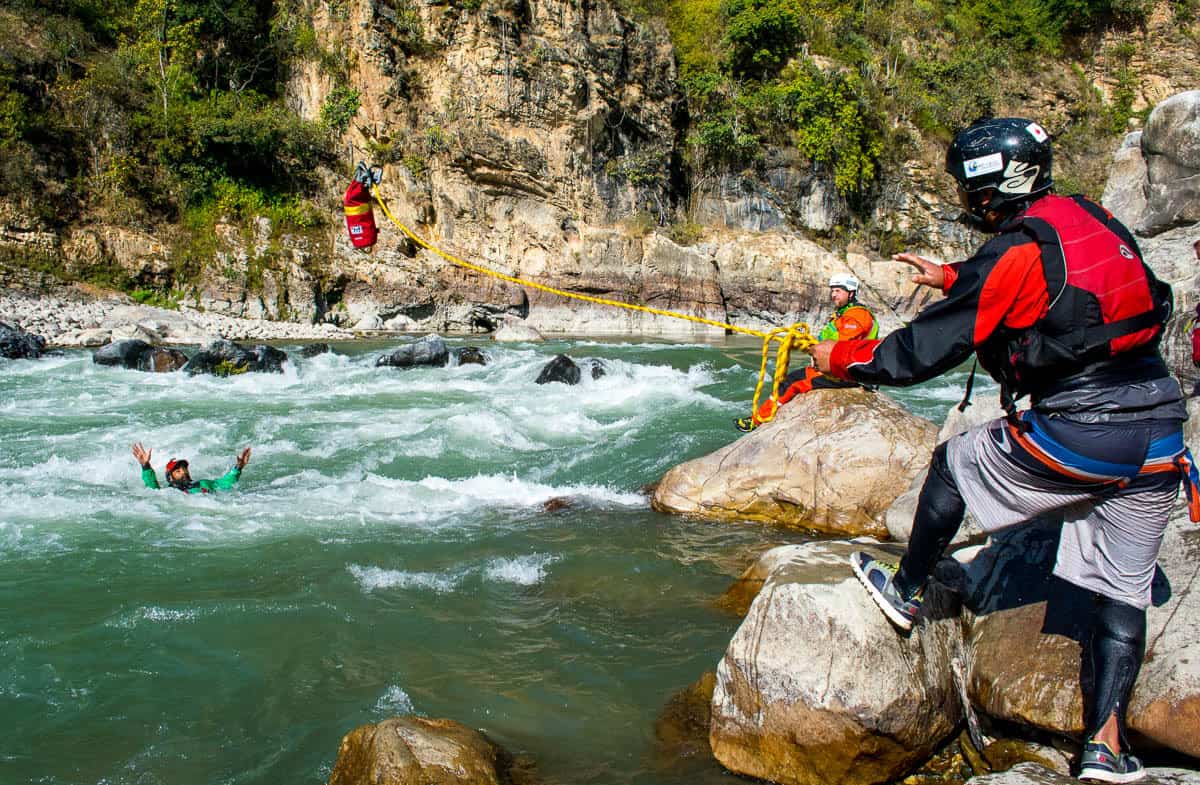
The aim of the GTE system is to increase safety in rafting world-wide by creating and managing a system of personal competence awards that ensure a set of global safety standards for commercial whitewater rafting.
Learn more about IRF GTE Awards on the International Rafting Federation Web Site.
Q: Is this an instructional course or a test of my guiding abilities?
A: The workshop is predominantly a test of your guiding ability. We want to promote current best global standards so there will be a lot of new techniques and open discussions. This workshop is open to guides, trip leaders, and safety boaters with previous experience.
Q: Who is this course for?
This course is for experienced commercial river guides. You must submit a logbook of your commercial river guiding experience to participate.
Q: Why should river guides take this course?
A: The workshop will address any areas of your guiding skill set that may need improvement. By having an instructor from outside of the USA observe your skills you are opening yourself up to learn the current best global practices.
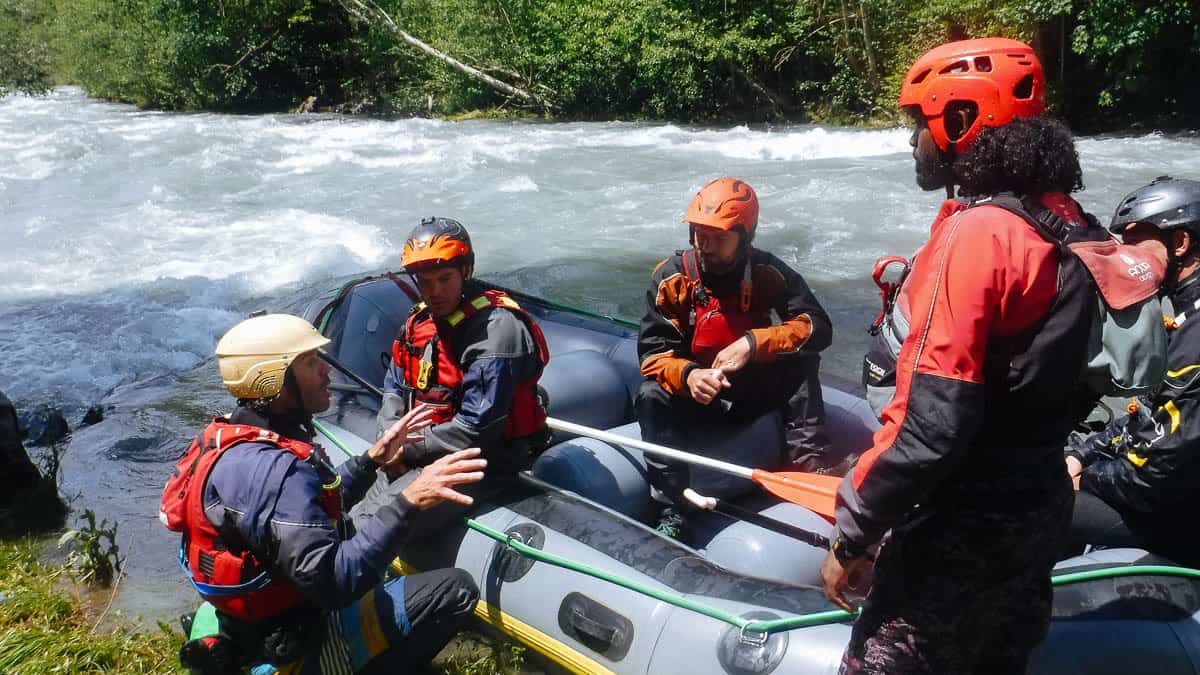
Q: Do rafting companies in the United States require IRF certification?
A: No. The IRF certificates are a statement of competence that are recognized and accepted in over 40 countries. For any guides wishing to travel overseas the IRF awards are a useful resource when applying for work.
Q: What do I need to do to pass an assessment?
You will need to attend a guide workshop. During the workshop you will be asked to perform some practical tasks. For each of the tasks you will be given a score of between 1-5 points.
- 1 Points = Poor (Not a pass)
- 2 Points = Weak (Not a pass)
- 3 Points = Satisfactory (pass)
- 4 Points = Good (Pass)
- 5 Points = Excellent (Pass)
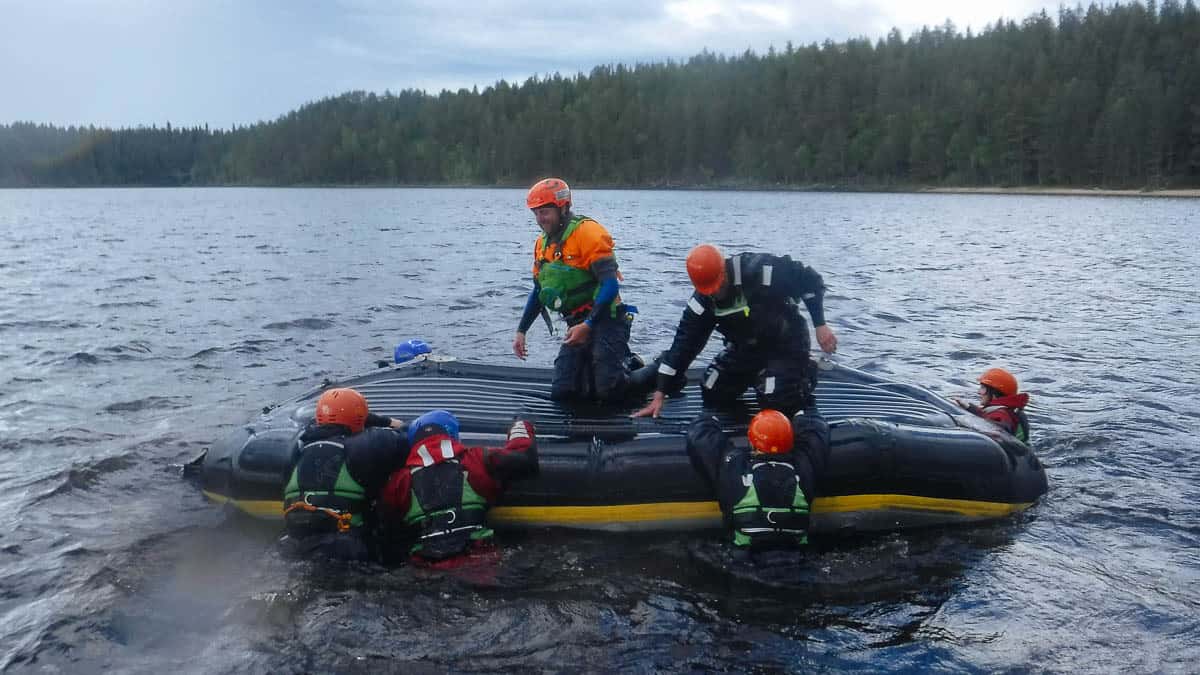
The areas in which you will be assessed on will vary depending on which award you are to be assessed for. During a typical raft guide assessment you can expected to demonstrate:
1. Pre-departure safety demonstration/talk
2. Raft guiding & river running skills
3. Personal whitewater swimming skills
4. Throw bag rescue skills
5. Rope work skills
6. Flip drill test
7. Standard IRF multiple choice exam
If you wish to be assessed as a class 3 guide – all of the skills below must be demonstrated on class 3 water.
Q: What is the safety kayak & safety raft assessments?
A: The IRF realized that the role of the safety kayaker/rafter within in a commercial whitewater trip is a specialist skill set that requires additional rescue skills and river running skills in order to operate within a commercial trip.
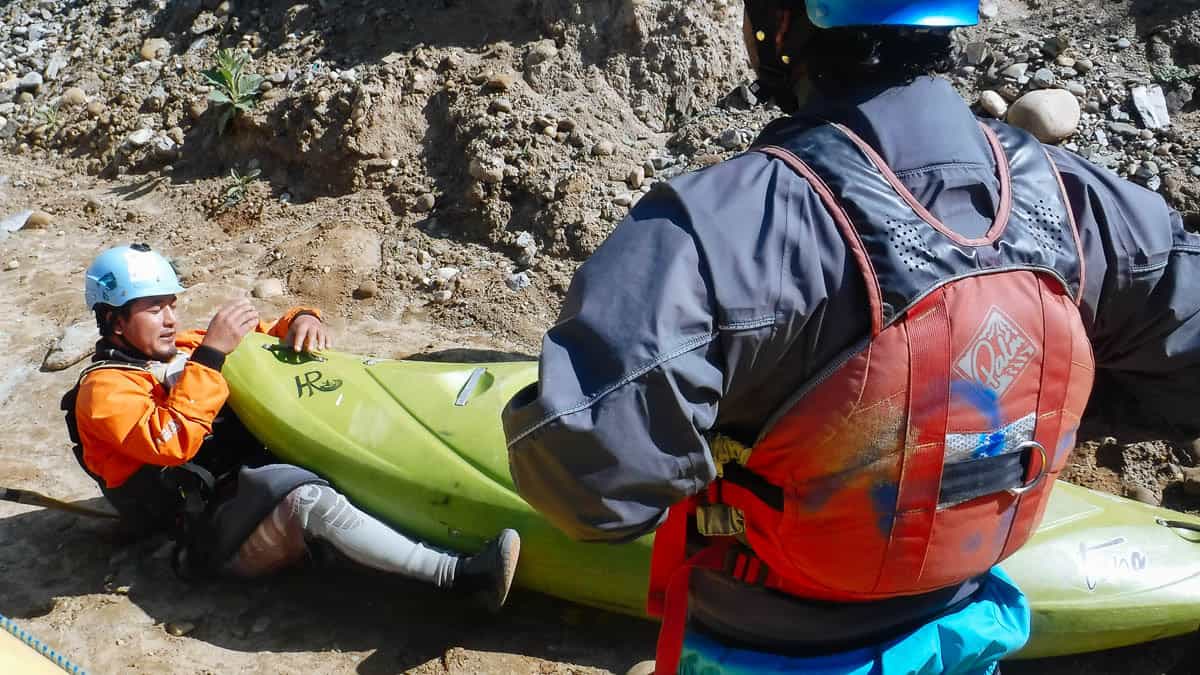
The safety kayak/raft assessments are normally added tp a workshop to allow students to gain some extra valuable rescue training and hopefully pick up another IRF award.
Q: Are there any other benefits to joining an IRF workshop?
A: Yes. IRF workshops attract guides from all over the world from a variety of rivers and operations. This gives the students on the workshop the opportunity to learn current best global practice. IRF workshops are also a great social networking opportunity for raft guides.
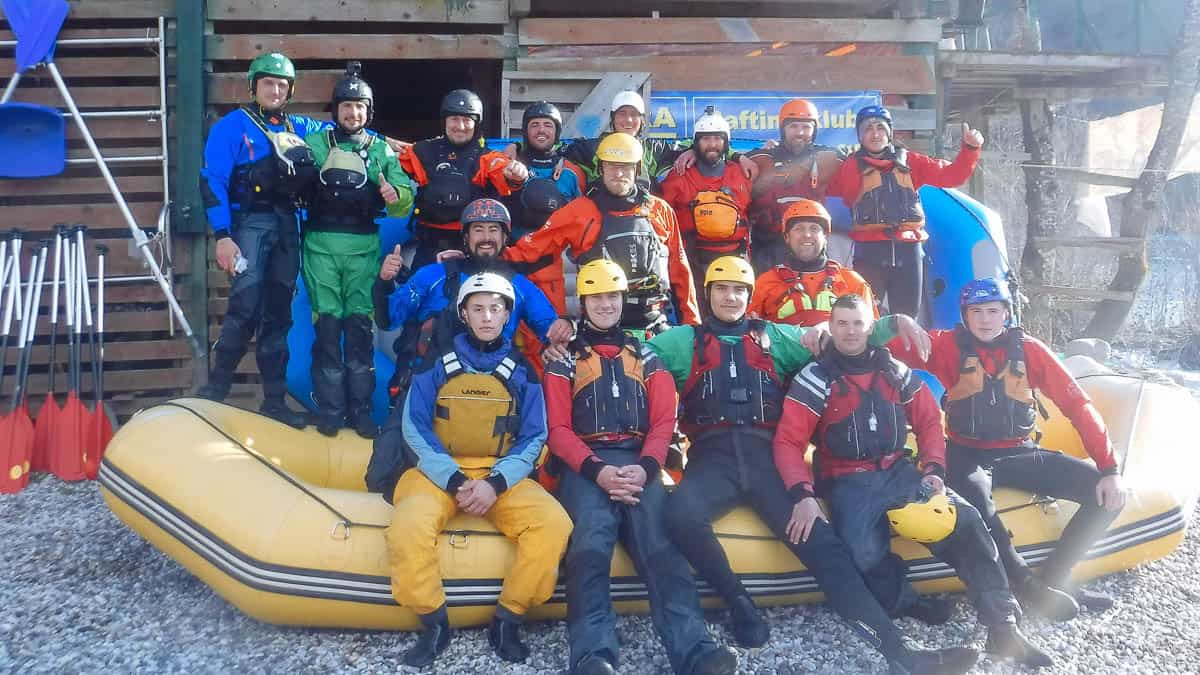
Q: What is the structure of the award scheme?
A: The GTE system has 7 designations
- Guide (Responsible for guiding a commercial as part of a commercial rafting trip)
- Safety Rafter (Responsible for providing a rescue platform during a commercial trip)
- Safety Kayaker (Responsible for providing a rescue platform during a commercial trip)
- Event Safety Technician (Dedicated to providing safety cover at race events)
- Trip Leader (Responsible for the overall running of a commercial trip)
- Instructor (Responsible for educating & assessing guides & trip leaders)
- Assessor (Responsible for assessing instructors)
Each designation from guide to instructor will have its own restriction. In total there are 6 restrictions:
- Site specific: Allows guides to only guide rafts on artificial courses or rivers with very little flow change.
- Provisional: A provisional award is given when a candidate is still missing a certain aspect of the award criteria. For example, more throw bag experience is needed to pass the throw bag section of the test.
- Level 2: The candidate has been assessed on class 2 whitewater & has demonstrated all of the skills needed to operate on a commercial trip on class 2 whitewater.
- Level 3: The candidate has been assessed on class 3 whitewater & has demonstrated all of the skills needed to operate on a commercial trip on class 3 whitewater.
- Level 4: The candidate has been assessed on class 4 whitewater & has demonstrated all of the skills needed to operate on a commercial trip on class 4 whitewater.
- Level 5: By Application only. The candidate has suitable experience & knowledge to commercially guide on class 5 whitewater.
A full copy of the IRF award structure can be found on the International Rafting Federation Web Site.
Q: What are the minimum requirements needed to hold & maintain an award?
A: The Minimum requirements needed to hold an IRF award are:
- Be a minimum of 18 years of age
- Be able to swim and be physically capable to work on a commercial trip
- Hold a valid first aid certificate that must include CPR
- Maintain a current Logbook of rafting experience
- Pay $25.00 USD every 3 years to renew your award
Q: What do I get?
A: You will receive a detailed feedback report after the assessment leaving you with a clear pathway to your future development. Once your IRF award fee has been processed you will receive a digital PDF certificate sent to you via Email. A photo ID card will also follow later. Your name and qualification will also then go live on the GTE data base on the IRF Website. All IRF awards are valid for 3 years when supported by a valid first aid certificate.

